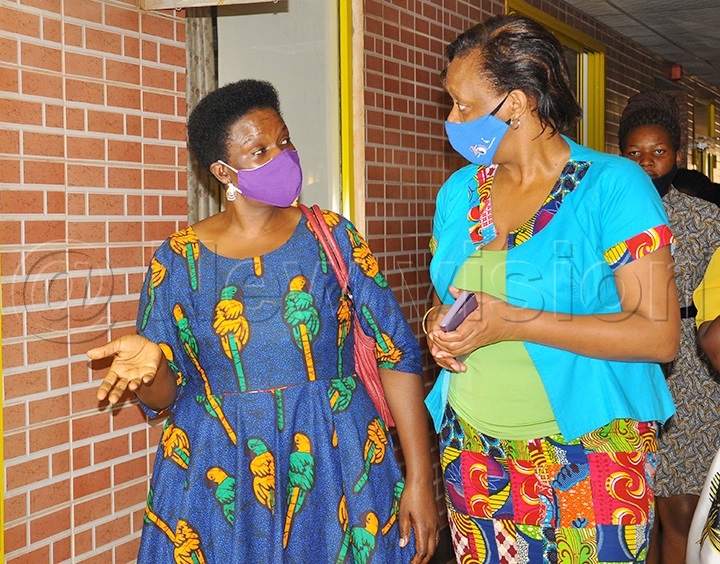Women activists to revive women movement, nurture young women
Sep 18, 2020
Statistics indicate that only 21.6% of women in the public sector enjoy the high positions (Permanent Secretaries and Commissioners among others), 33.3% middle level positions while 43% in lower positions.

Women rights activists have embarked on a campaign to start nurturing the young women within public service as part of the move to break barriers to leadership.
The women note that despite the existing policy frameworks and laws on gender parity, the majority of women remain employed in lower positions in the public sector.
The Equal Opportunities Commission (EOC) chairperson, Sylvia Ntambi Muwebwa said the majority of women remain stuck at lower-level positions in the public sectors.
She stressed that statistics indicate that only 21.6% of women in the public sector enjoy the high positions (Permanent Secretaries and Commissioners among others), 33.3% middle level positions while 43% in lower positions.
Ntambi attributed this to the lack of nurturing of the young women in the public sector, on how they can rise to different positions.
She made the remarks during the National Annual Solidarity Forum for women in the public sector and political leadership at Hotel African in Kampala.
It was organized by FOWODE in partnership with the Women in Public Sector (WiPS) Consortium including EOC, Uganda Women's Network (UWONET), and Femme Forte with support from Robert Botch Foundation (RBF).
The consortium is also implementing a project titled; "Amplifying Women's Voice and Agency in the Public Sector".
Ntambi said with the majority of women occupying the lowest offices in the public sector, men continue taking lead in decision making.

"So, where are we as women? We are tea girls and secretaries; these men are not helping us," she said.
"Where is our old movement? What are we and where do we want to be? We must re-energize the women's movement to nurture the young women to know what do to grab these opportunities," she added.
While giving her keynote address, the Judge of the High Court Justice Suzan Okalany, said if it was not FOWODE, she would not know her rights.
"FOWODE helped build confidence in me, otherwise I would not be where I am," she acknowledged.
She said the women's movement should be rejuvenated through to the harmonization of competencies and potentials to avoid duplication of efforts.
She said due to the women's movements, women's rights have become more visible.
Okalany said mentorship is critical if women are to consolidate and sustain the gains of the women's movement.
The former leader of opposition, Winnie Kiiza said young women within the public and other sectors must be focused on networking and studying the environment in which they work to easily grab the existing opportunities.
"Networking is very critical for success. But you must have the right skills and credentials. You must be prepared for any opportunity. They are not going to give you any space because you are a woman," she added.
She said it important to understand the environment in which one is working and those around them, to easily get help in case of need.
Kiiza who also attributed her success to women movement, called on young women to get out of their comfort zones and look out for mentors if they want to thrive.
"Nurturing sisterhood and solidarity should be at the forefront to harness the women's movement," she noted
She, however, noted that the party politics was also killing the women's movement.
"Today it is about party positions and many end up ignoring the agenda. We need to engage women party tickets to understand the agenda and also know that they hold the places on behalf of the many out there," she said.
The executive director UWONET, Ritah Aciro said they have started building capacity for women in the public sector.
"We want to dismantle the patriarchal systems. We are what we are because of the women's movement. People need to know where we are coming from. Women's movement is the shoulder that we all stand on," Aciro added.
The FOWODE boss, Patricia Munaba said sisterhood is critical as in advancing the women's agenda.
"There is a high concentration on women in politics. Curving out space in the public sector is a critical step in achieving gender equality," she added.
The head of the budget monitoring and accountability unit at the Ministry of Finance, Margaret Kakande, cited reproduction which mostly restrains women's development and promotions in public service.
"Many can't balance preproduction and production which affects their performance. You must have a basic level of education at an early age. Many fail to get their master's degrees thus hindering them from being promoted," she added.
She says others fail due to lack of mentoring.
The country representative RBSG, Solome Nakaweesi, said career stagnation, slow progression and a fewer number in higher decision making spaces remain key challenges for women in the public sector.
